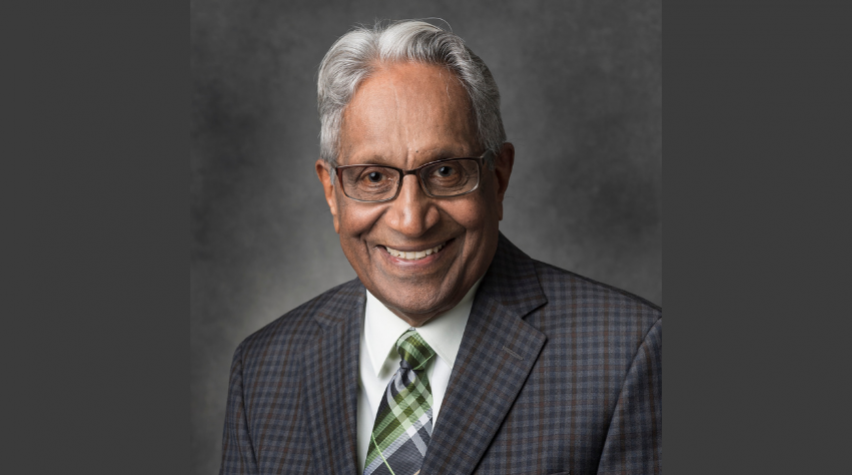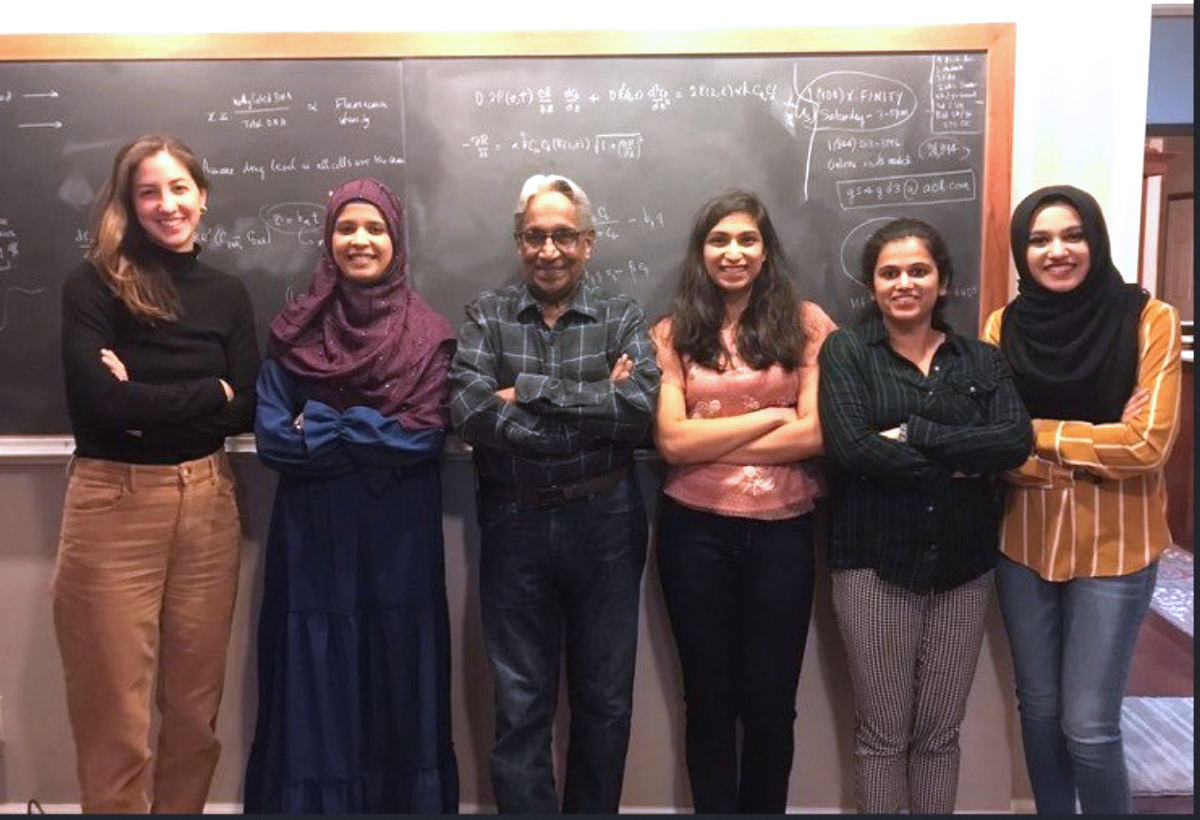
ChEnected is introducing readers to the recipients of AIChE’s 2021 Institute and Board of Directors’ Awards. These are AIChE’s highest honors, and all candidates are nominated by the chemical engineering community and voted upon by the members of AIChE’s volunteer-led Awards Committee. The awards acknowledge outstanding achievements across a spectrum of chemical engineering endeavors.
First presented in 1935, the William H. Walker Award for Excellence in Contributions to Chemical Engineering Literature is named for William Hultz Walker (1969–1934), a founder of the chemical engineering discipline who in 1916 established the School of Chemical Engineering Practice at the Massachusetts Institute of Technology. The Walker Award is presented to a member of AIChE who has made outstanding contributions to the field’s literature. The award is sponsored by John Wiley & Sons.

The recipient of the 2021 William H. Walker Award is Doraiswami Ramkrishna, The Henry Creighton Peffer Distinguished Professor of Chemical Engineering at Purdue University.
Dr. Ramkrishna’s recognition
Dr. Ramkrishna is being honored “for original and seminal contributions to the chemical engineering literature on the application of mathematics to chemical, particulate, and biological processes.” He is lauded for his development of novel mathematical frameworks with wide applications to chemical and biochemical reaction engineering, particulate systems, biological systems modeling, and, more recently, personalized medicine for the treatment of diseases such as cancer.
Ramkrishna and the other award recipients will be honored at the 2021 AIChE Annual Meeting, November 7–11 in Boston, Massachusetts. A video presentation of the awards will be available for viewing the following week at a virtual version of the Annual Meeting.
Computation without familiarity of the underlying mathematics makes one vulnerable to roadblocks that are not overcome without deep insight.
More about this year’s winner
Ramkrishna’s recognition focuses on two areas of his research. The first is his book Population Balances (2000), which covers all aspects of population balances and their applications, and has been cited more than 2,000 times. Papers by Ramkrishna and Kumar on the solutions of population balance equations by discretization have also received more than 2,000 citations. A second area cited for his Walker Award is his contribution to the literature on the development of the cybernetic approach to the dynamic description of metabolic processes.
Dr. Ramkrishna — known to colleagues in the community as Ramki — earned his B. Chem Eng degree at the University of Bombay (now the Institute of Chemical Technology) and his PhD from the University of Minnesota. He returned to India to join the faculty at the Indian Institute of Technology before joining the Purdue faculty in 1976.
A Fellow of AIChE and the American Institute for Medical and Biological Engineering, Ramkrishna’s earlier honors from AIChE include the Alpha Chi Sigma Award for Chemical Engineering Research, the R. H. Wilhelm Award for Chemical Reaction Engineering, and the Thomas Baron Award from the Particle Technology Forum. Additional books written by Ramkrishna include Linear Operators (with Amundson) and Cybernetic Models (with H-S Song). Ramkrishna was elected to both the U.S. and Indian National Academies of Engineering.
 Prior to the pandemic, Professor Ramkrishna (center) gathered at his home with some of his research students. From left to right: Pelin Bulutoglu, Sana Khanum, Dr. Ramkrishna, Parul Verma, Akancha Pandey, Naseeha Mohammed.
Prior to the pandemic, Professor Ramkrishna (center) gathered at his home with some of his research students. From left to right: Pelin Bulutoglu, Sana Khanum, Dr. Ramkrishna, Parul Verma, Akancha Pandey, Naseeha Mohammed.
Dr. Ramkrishna’s reflections on the award
In acknowledging his Walker Award honor, Professor Doraiswami reflected on the mathematical foundation that underpins chemical engineering, and cautioned future engineers and educators not to neglect the fundamentals — such as mathematics — that have sustained the profession.
“The ability of chemical engineers to mathematically formulate the most diverse class of problems has enabled them to contribute creatively in boundless directions transgressing traditional boundaries. While there is much to laud over the contribution of chemical engineers to new areas, the very core that led to this impressive outreach has notably weakened in the flurry with which newer fields are being pursued. This trend will be familiar to anyone who teaches core graduate courses to new graduate students — who are of late less comfortable with mathematics, transport, reaction engineering and thermodynamics.
Perhaps not everyone needs to grind through the development of continuum or statistical mechanics, or be familiar with Aris’ two volumes of diffusion and reaction, or learn Hilbert Space theory or differential geometry, but the splinter group that did break away from the mainstream in the past in search of fresh insight seems to be visibly diminishing. Regardless of the amazing capabilities of software such as Matlab or Mathematica, and more recently machine learning algorithms, computation without familiarity of the underlying mathematics makes one vulnerable to roadblocks that are not overcome without deep insight.
Chemical engineering departments must maintain a core faculty skilled in transport, thermodynamics, chemical reaction engineering, and applied mathematics to teach the core courses, with follow-up in the systems area such as process synthesis and control.”
Stay in the know
In the weeks leading up to the 2021 AIChE Annual Meeting, ChEnected will feature the other 2021 Institute and Board of Directors’ Award recipients. Visit the ChEnected series regularly to meet all of this year’s honorees. Visit aiche.org/awards to see all award winners.


